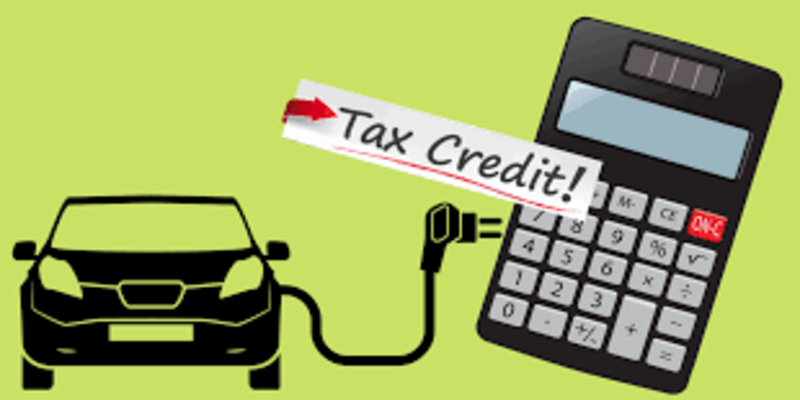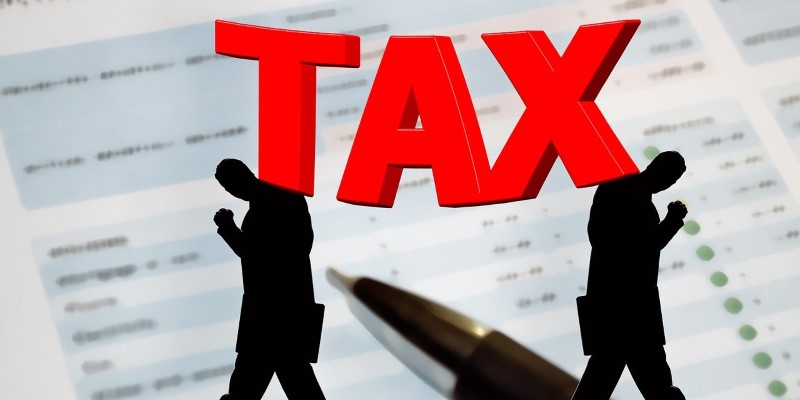Rules And Requirements For Clean Vehicle Purchases With The Electric Vehicle Tax Credit
Feb 13, 2024 By Triston Martin
The federal government created the electric vehicle tax credit 2023 to encourage more Americans to switch to electric and plug-in hybrid automobiles. The government hopes to reduce glasshouse gas emissions and promote sustainable transportation by offering tax incentives to consumers who buy or lease clean vehicles. This program allows eligible taxpayers to get a federal income tax credit to encourage purchasing or leasing approved electric cars. The tax credit is beneficial since it lowers the taxpayer's effective tax rate. To make the most of this tax credit and make well-informed decisions about the purchase or lease of an electric car, it is crucial to be familiar with its laws and qualifications.
Understanding The Tax Credit For Electric Vehicles
The federal electric vehicle tax credit of the United States has established the Electric Vehicle Tax Credit to encourage more people to buy or lease electric or plug-in hybrid vehicles. Qualifying people can claim a tax credit on their federal income tax returns to pay less in taxes. Tax credits, in contrast to tax deductions, immediately reduce the amount of tax that must be paid, which is why they are more beneficial to taxpayers.
Eligibility For The Federal Tax Credit For Electric Vehicles
Eligibility For A Vehicle
Some requirements must be met by the buyer or lessee of an electric car to receive the irs electric vehicle tax credit for doing so. A minimum of 4 kilowatt hours (kWh) of traction battery pack capacity is required if an electric motor predominantly powers the vehicle. The car must also be "plug-in capable," meaning it can be charged from an external source.
Taxpayer Eligibility
Taxpayers must complete qualifications to qualify for the Electric Vehicle Tax Credit. They must be the legal owner of the qualifying vehicle and have purchased it for private or commercial use. To receive the credit, the person must also owe federal income tax. There is no need to apply for the credit if the taxpayer has no federal tax liability.
Purchase Or Lease Qualifications
If you buy or lease an EV that meets specific requirements, you may be eligible for the Electric Vehicle Tax Credit. If the car is leased, the leasing company is the typical tax credit recipient, and the lessee may see reduced lease payments. However, the tax credit allocation is determined by reviewing the lease agreement's conditions.
Calculating The Electric Vehicle Tax Credit
Credit Percentage
The Electric car Tax Credit amount is determined as a percentage of the car's total purchase price. The size of the vehicle's battery pack is the determining factor in the rebate percentage. Credit percentages begin at 2.5% for cars with a battery capacity of less than 5 kWh as of the knowledge cutoff in September 2021 and grow steadily to 30% for vehicles with a battery capacity of 16 kWh or greater.
Maximum Credit Amount

While the credit percentage fluctuates with battery size, a cap on the total amount can be received for anyone eligible car. For instance, if the maximum credit amount is $7,500, no taxpayer can claim a tax credit for that vehicle in an amount greater than $7,500, regardless of the credit percentage.
Phase-Out Rules For The Electric Vehicle Tax Credit
The Electric Vehicle Tax Credit has phase-out regulations to make sure that tax credits are accessible to a wide variety of consumers. The tax credit is phased down for a given manufacturer after reaching a specified threshold regarding sales of eligible vehicles. As EV use increases, the government might gradually lower the incentives during this phase-out period.
Applying For The Electric Vehicle Tax Credit

When completing their federal income tax return, taxpayers can get a credit for purchasing an electric vehicle by filling out Form 8936. Necessary paperwork, such as purchase or lease agreements, should be kept as evidence. Accurate and timely tax filing is possible with the help of a tax professional or tax preparation software.
Conclusion
When buying or leasing an electric or plug-in hybrid vehicle, the Electric Vehicle Tax Credit is a significant incentive. If you want to make intelligent choices and get the most out of sustainable transportation, you need to know the ins and outs of this tax credit. Individuals can benefit from the Electric Vehicle Tax Credit by completing the vehicle and taxpayer eligibility requirements, calculating the credit amount accurately, and following the phase-out restrictions.
-
 Know-how Dec 29, 2023
Know-how Dec 29, 2023Decoding CPI: Navigating the Consumer Price Index and Its Impact on Your Wallet
Dive into the Consumer Price Index (CPI). Discover how CPI impacts your daily life and gain an understanding of the economic principle of inflation.
-
 Taxes Oct 11, 2023
Taxes Oct 11, 2023EY TaxChat Review: Professional Tax Preparation Made Easy
Looking for hassle-free tax preparation? Read our EY TaxChat review to explore this professional service's varied pricing and benefits.
-
 Investment Nov 29, 2023
Investment Nov 29, 2023Investing In Real Estate VS Stocks: Making the Right Choice
Discover the advantages and drawbacks of investing in real estate and stocks. Make informed decisions by understanding key differences and market conditions.
-
 Taxes Oct 11, 2023
Taxes Oct 11, 2023Exploring the Difference Between Tax Evasion And Tax Avoidance
This article explores the key differences between Tax Evasion and Tax Avoidance. It also provides information regarding the consequences of both.
